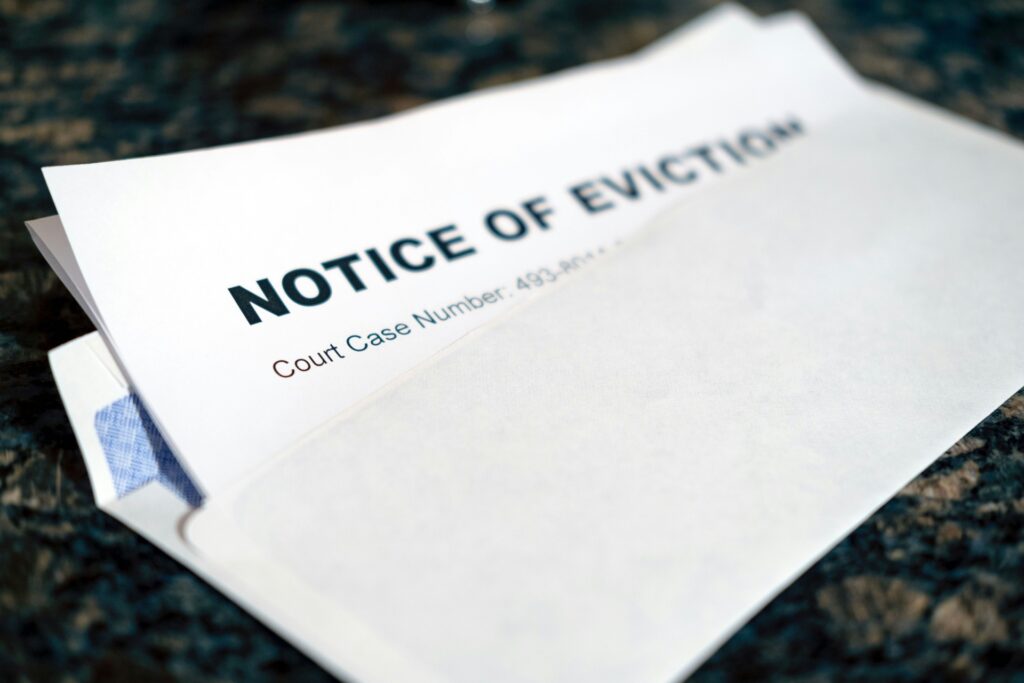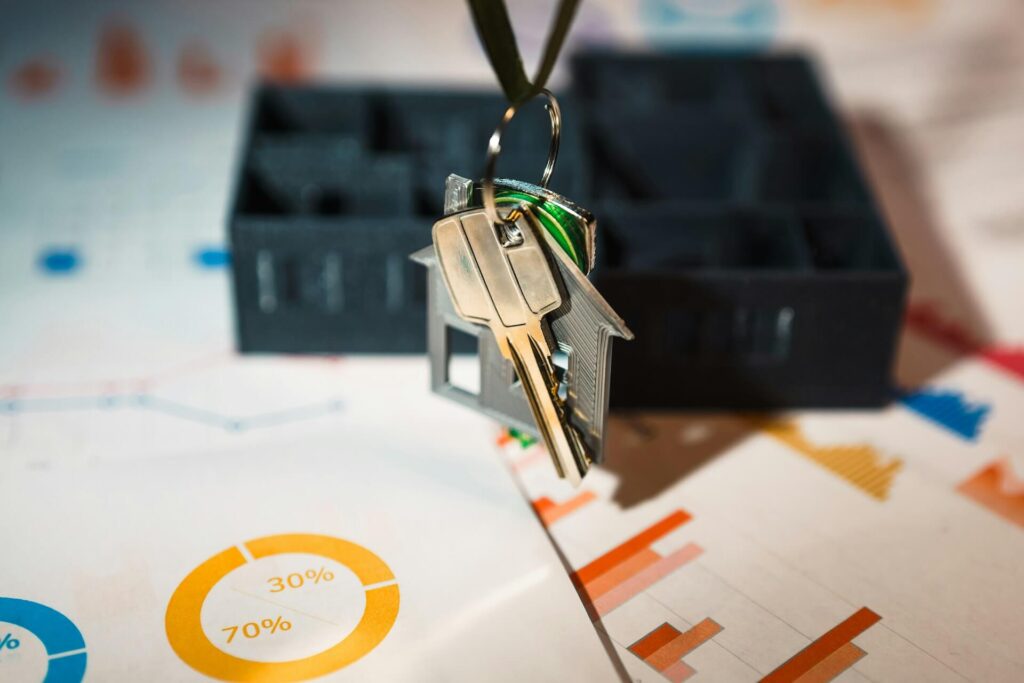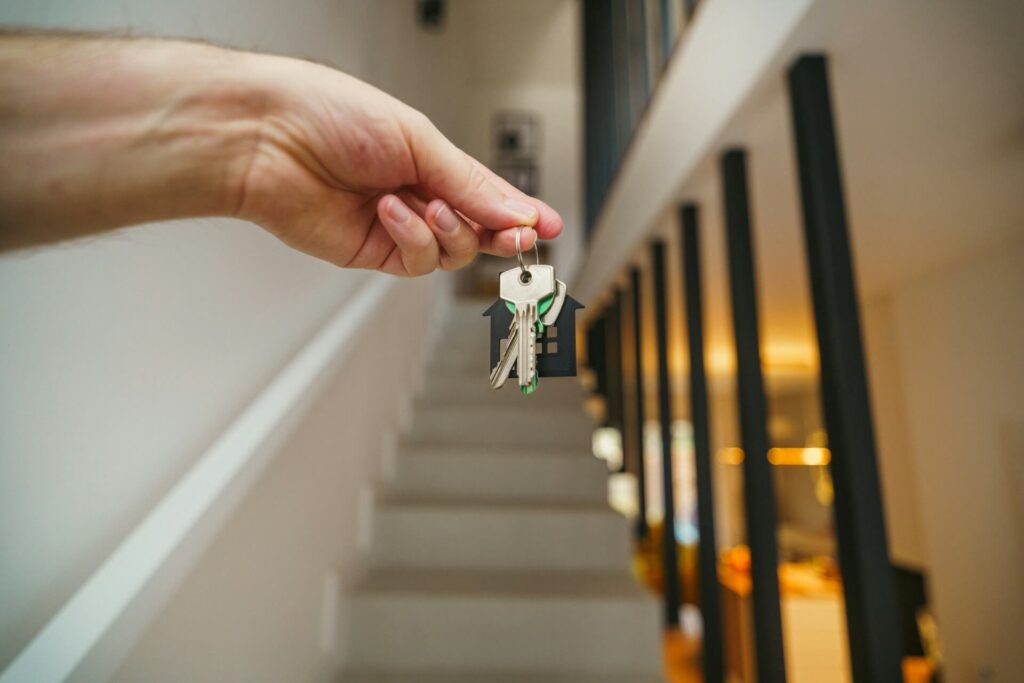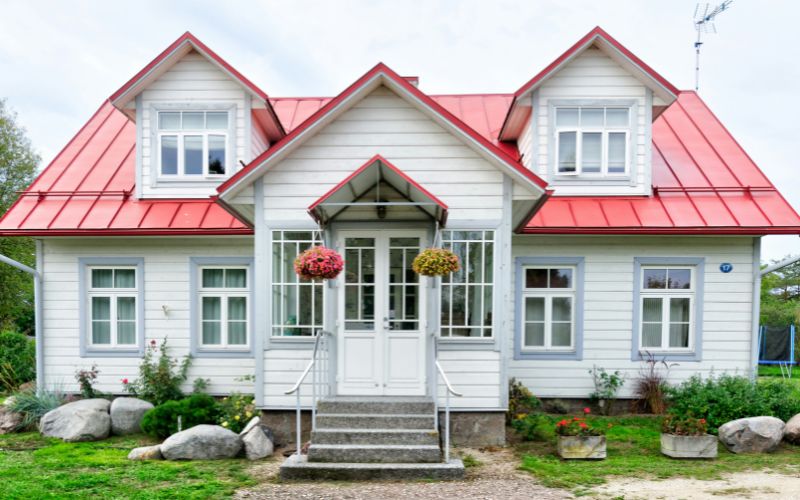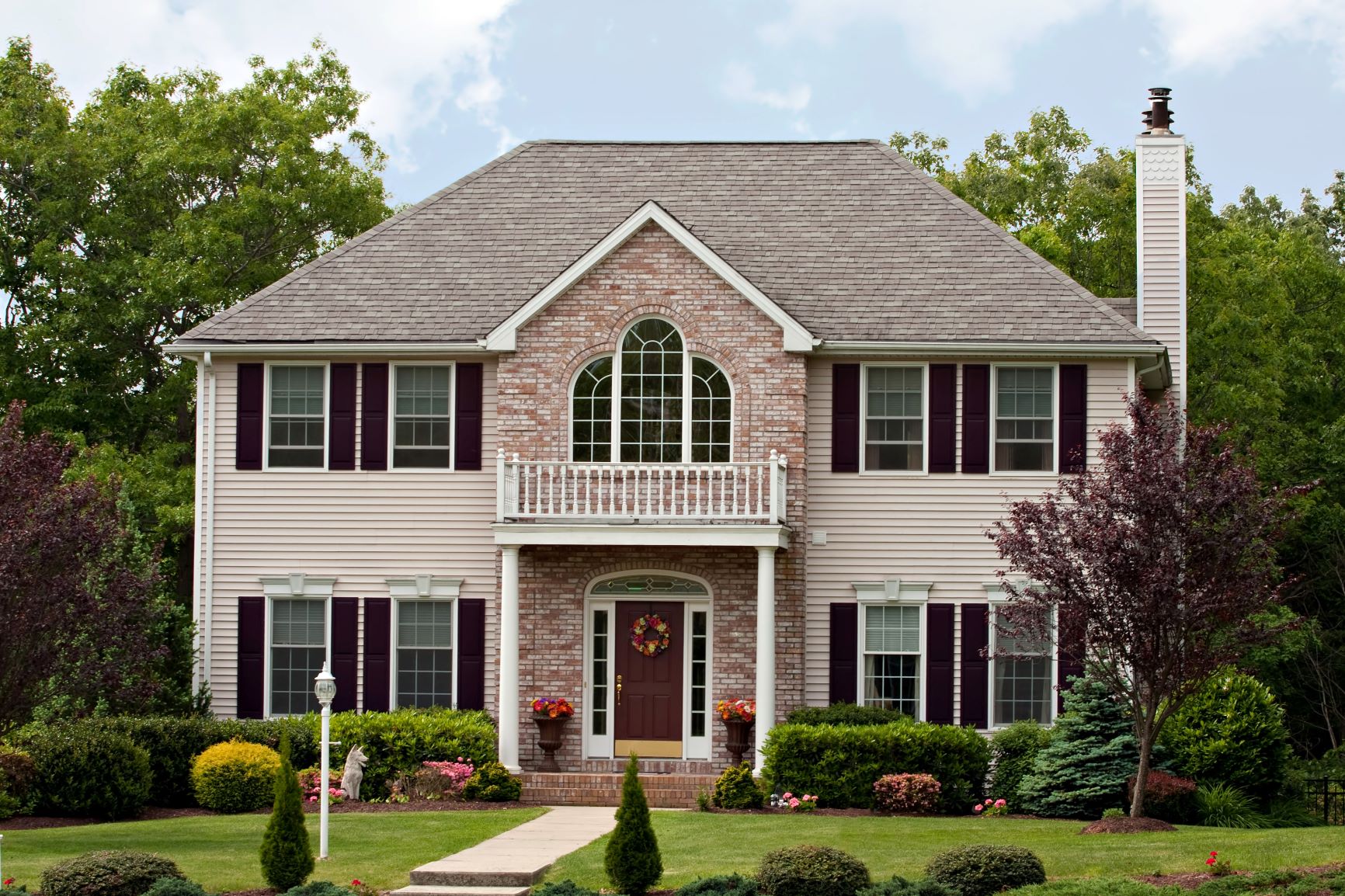
We are reader-supported. When you buy through links on our site, we may earn an affiliate commission.
Finding the perfect home is something everyone wants. Whether that’s a rental unit or a house with a yard, you should know how to achieve your dreams. Have you ever wondered how much you should spend on housing? It’s time to learn precisely how to get the living situation you want.
Buying a home or navigating the rental market can seem confusing. Use this guide to find the answers to your most common questions and make an action plan for your future.
How Much Does Housing Cost?
Your monthly budget likely revolves around what you spend on your current housing. Rent and mortgages often take the majority of a person’s income, but that leaves little room for saving for retirement or other life milestones.
When you need to move somewhere new to start fresh or find a better place to live, figuring out the cost of housing, in addition to other cost of living factors, is the first place to start your research. It wouldn’t help to move somewhere that drains more of your income. Here are a few estimates for different types of housing research.
Buying a House
The average home listing will vary per state, but the median price rose to $319,769 in 2020, a 14% increase from 2019. It was also the highest increase on record. The housing market has only increased since mid-2013, so you should prepare to save more for a down payment than your friends and family paid even just a year ago.
Renting an Apartment
Many people prefer living in an apartment because there’s less of a financial burden. You don’t have to take out a loan or pay for repairs, but the average U.S. renter pays around $1,098 per month for a one-bedroom apartment. That’s a significant monthly payment to consider, especially for young people just starting their independent lives.
Renting a House
You can also consider renting a house when thinking about how much you should spend on housing. You’ll still have a landlord who takes care of repairs, but you’ll likely pay more in rent. Owners calculate rent based on the property price and square footage. Since a home will be bigger than most apartments, you’ll likely pay more than the average apartment fees in rent.
How Do I Research Housing Prices?
You shouldn’t jump into a rental lease or home purchase agreement without doing your research. Where can you start investigating local housing prices? Use these tools to discover the best bargains or the worst deals.
Real Estate Websites
Real estate websites allow people to apply filters and explore the local housing market. Whether you want to rent or buy, you’ll find exactly what you need and estimated monthly payment costs on every listing. Any home that’s for sale will also have a graph showing how much it sold for over the past decade or longer.
Check out popular real estate websites for a large selection of housing options, like:
- Zillow
- Trulia
- Realtor
People rely on these websites because they give plenty of information upfront that you can use to discuss your options with a real estate agent or leasing office.
Annual Housing Reports
Read annual housing reports to avoid falling for an overpriced rental unit or home. The Federal Housing Finance Agency (FHFA) publishes a yearly report on the market. You’ll find the overall pricing trends and where you can locate the best deals.
Local housing reports in newspapers will provide more specific information on where you want to live. Rural communities may have more affordable properties or rental units than your state’s median estimates, but downtown condos could be more expensive than the national average. It depends on your location and budget.
Ask Your Loved Ones
Your friends and family may have moved within the last year. Ask them about their experience and what they found during their research. They could have tips to find the best deals or avoid mistakes they made based on their recent move.
Loved ones could also have connections that make your housing search more manageable. Someone might know a real estate agent who could look into the market at no cost or a financial adviser who would give you advice for free because of your mutual friends.
How Much Does the Average Person Spend on Housing?
There are a few ways to approach the average cost of housing, although it varies depending upon where you live. These are the most common costs you can use to estimate your future budget.
Average Mortgage Balance
You’ll request a mortgage loan from a bank or another lender after deciding how big your house will be and what prices you see in your region. A rural four-bedroom home could cost $190,000, but the same home would cost $450,000 in a major city.
Mortgages are different for everyone, so how can you know what you’ll spend on a house? The average American home loan balance increased to $208,185 in 2020, up 2% from 2019. It’s a significant sum to prepare for when you’re used to renting, but you won’t have to pay the entire loan upfront.
You’ll learn to spot deals and get used to seeing home prices once you explore the market by browsing local listings.
Average Interest Rates
The annual percentage rate (APR) determines how much you’ll pay each year in interest on your total mortgage. A lower APR means you’ll make a bigger dent toward paying off your loan with each monthly payment, but your APR depends on your financial situation.
The average first-time homeowner puts 6% down on a house, resulting in lower monthly payments and higher interest rates. A 30-year mortgage could result in $1,000 payments each month, but the APR would remain fixed at 3.29%. If you have a higher down payment and a better credit score, you could get a 15-year mortgage for $1,400 each month and an APR of 2.79%.
While you’re asking for loan estimates, note the APR required by each lender. Comparing your notes will reveal which one will work best for your budget while keeping your interest rates low.
Average Monthly Budget
A costly monthly mortgage or rent payment might seem like a deal where you live. How much should you spend on housing each month to have enough left over for other financial obligations? It depends on your living arrangement and income.
People who give traditional financial advice would say to spend 30% of your budget on your housing. That number started with housing and interest rates from the ‘90s and early ‘00s, but modern Americans have a much different experience. The average person spends 37% of their budget on housing alone, leaving little left for retirement or college savings.
If a 30% rent or mortgage payment is too expensive for your budget, look for something more affordable. You don’t have to abide by national or traditional estimates just because you’re moving somewhere new. Calculate how much you need to put aside for other financial needs to discover how much you’d have left for housing with your current income.
Average Annual Repairs
If you buy a house, your mortgage payments won’t be the only thing to add to your annual budget. You’ll also have to start paying for general maintenance and repairs. Factor these costs into your housing budget by putting aside money for an emergency savings account. You’ll always have funds on standby if your pipes burst or appliances break.
Someone who owns a $100,000 house should save at least $4,000 for repairs, which equals 4% of the property value. If you can’t do that while paying your potential new mortgage, it might be in your best interest to find a better deal on another house.
How Should I Save for Buying a House?
If you want to buy a house, you also have to determine how much you should save for your down payment. Although most people have heard you need 20%, that’s not always the case anymore.
Housing prices have skyrocketed in the last decade, but average wages retained the same purchasing power as they did 40 years ago. People can’t afford to keep up with the same financial advice that worked for their parents or grandparents because of the stagnant wage trends.
Lenders offer minimum down payments for homebuyers on a budget. How much you should save for a house depends on your loan preferences, which carry rates like:
- Federal Housing Association (FHA) loans: 3.5% down
- U.S. Department of Agriculture (USDA) loans: 0% down
- Traditional mortgages: 3% down
Your credit score and existing savings could decrease your down payment, too. If you already have this information and know how much your preferred housing generally costs, lenders will estimate how much they can give you for a minor down payment.
First-time homebuyers should be aware of mortgage insurance, which protects lenders who give risky loans to people with low credit scores or poor financial histories. It requires the buyer to pay a bit more with their monthly mortgage payments. The only way to avoid mortgage insurance is to pay 20% or more of your down payment.
How Can I Get a Housing Loan?
Your housing budget depends on your home loan, but there are many resources available for your convenience. Investigate your options by looking into these popular loan programs.
USDA Home Loan
USDA loans exist for people who want to buy or upgrade rural properties. They also have income requirements because they’re for people who need a helping hand to gain upward mobility in the housing market. If you qualify based on your income and location, you won’t have to worry about a down payment and you’ll get lower interest rates than traditional lenders.
FHA Home Loan
The FHA offers a few different options for people in various housing situations. You could apply for a first-time home loan with a 3.5% interest rate or get a reverse mortgage if you’re older than 62. There are also loans for homeowners who want to invest in energy-efficient improvement projects.
Good Neighbor Next Door
The U.S. Department of Housing and Urban Development (HUD) provides loans for people in service careers, like:
- Police officers
- Teachers
- Doctors
- Firefighters
- Emergency medical technicians (EMTs)
If you have one of these careers and find a house you like, HUD may grant a 50% discount off the total listing price. As long as you live there for at least 36 months, you could spend comparatively less and save big on long-term housing costs. Lower listing prices mean a smaller monthly mortgage, which could result in paying your mortgage off in full sooner.
HomeReady Loan
HomeReady loans are for people who have low incomes, little savings or credit scores lower than 620. They’re available across the country, but income requirements for applicants will change in each city or town. Experts will compare your annual income with the local average, so you might not qualify if you earn more than that.
HFA Home Loan
The Housing Finance Agency (HFA) is a state program that may provide financial assistance to homebuyers. The minimum down payments for these loans are 3% and include cancellable mortgage insurance if your equity reaches a certain percentage of the home’s value. It’s a potential option if your income doesn’t qualify for a HomeReady loan because the program has different qualification rules.
Where Can I Find Financial Assistance?
If you’re paying too much for housing and can’t afford to move to a better situation, financial assistance is available. HUD has a Housing Choice Voucher (HCV) program for people who need help with monthly home mortgage payments. If you meet the employment and income requirements, the program could provide monthly assistance to lower your housing costs if you’re stuck in an unsustainable situation.
Research state-sponsored grants as well. Depending on how costly the average living fees are in your city, your state government may have funds to offset monthly housing costs.
How Much Should I Spend on Housing? It Depends
Numerous factors determine how much you should spend on housing. You also have to consider your current goals. Think about if you want to move somewhere new, buy a house or sign a different rental agreement. Are you saving for a down payment or struggling to afford where you currently live?
Investigating these factors will get you one step closer to finding out if you’re paying too much every month or need to readjust your future housing goals. Take notes during every step of the research process, and you’ll find the best financial solutions for your needs.
